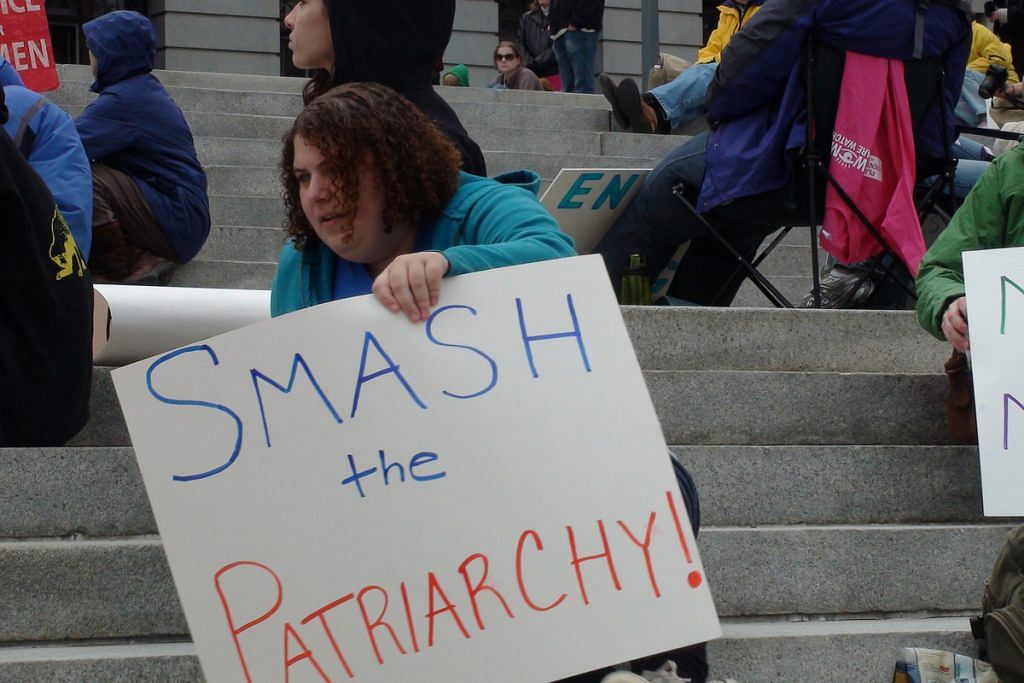The only mantra to fight woke misogyny right now is in three words, “I believe you”, and to provide pro bono legal support to victims of professors on the list.
As long as survivors give details but hide alleged perpetrators’ names, they receive support and solidarity. But when survivors unabashedly name names and hold back details of the trauma, the ensuing criticism ranges from tone policing to accusations of damaging the feminist movement. Abstraction is comforting; naming and shaming discomforts the pedestals of Leftist and liberal discourse, which itself was built on platforms like ‘Not in My Name’.
In a country with such rape statistics and victim-blaming culture, feminist allegiance, prima facie, should lie with the accuser. When was the last time our first response to a sexual harassment survivor was “I believe you”? This is a land of ‘feeble nos’, where women must increase their decibels to give or withdraw consent, but men never learn how to seek consent.
Savarna power-play has successfully managed to shift people’s attention from predatory university spaces to the list-making methodology instead. The issue has been derailed by people making it about how feminists should respond to the list, rather than the professors on the list.
Feminism has been divided on caste, class, and age factors, while men on that list have evaded the limelight. One prominent name has figured twice on account on the list, but that name is not trending on social media. The danger lies within university spaces and stems from entitlement of ‘woke’ (slang for ‘socially aware’, originated from African American vernacular) men who have acquired respectability from their social identities (i.e. savarna bourgeoisie). This identity not only rails their raft in academia, but also provides a pre-disposed character certificate to such powerful men, which an Uber driver won’t enjoy.
The writings and personas of men like Chetan Bhagat or Manu Joseph give them away easily. But sly smiling foxes who are ‘woke’ on the surface and a ‘joke’ within are harder to detect. Thus, this cautionary list comes as a re-invention of feminist kinship and the whisper network. Why are the ‘farrago liberals’ (farrago means ‘a confused mixture’, adopted from a Latin word for mixed fodder. After Shashi Tharoor’s tweet reprimanding Arnab Goswami, it ended up as one of the most searched for terms on Google) so unhappy if a Dalit-Bahujan-Adivasi (DBA) attorney is using digital capital to crowdsource predator professor names?
Web and social media spaces are more democratic than the real-life farrago discourse communities, where savarna women occupy more space. Our engagement comes in the form of sassy memes, funny GIFs, and wise Twitter threads – forms which are incomprehensible to the academic bumblebees. Every time Dalits call out mic-stealing liberals, they have to pass the savarna test of ‘respectability’ (read: well-behaved tone and methodology).
Raya Sarkar has described the list of alleged perpetrators as a cautionary one. Caution is not enough though, as caution breeds disengagement – the message given to young women is to “stay away to stay safe”. Caution culture can choke the potential of women students when they’re advised that they “must be careful or face retorts; we warned you!”.
This culture of caution and looking after oneself underlies the same patriarchal logic dictating differential hostel timings for male and female hostels. Harsher women hostel curfews are imposed under the pretext of women’s safety, but no one polices men instead, or tells them to lock themselves up by a certain time.
The overwhelming majority of JNU professors are savarnas, according to an RTI. JNU is thus actually ‘janeu’ (sacred thread). Snooty feminists get offended by the use of the ‘S’ word (savarna). When just the term ‘savarna’ is regarded as abuse by Nivedita Menon or others, then achieving diversity within the feminist movement or academia is a long-haul fight.
It’s impossible to have a ‘genuine conversation’ if caste-class privilege is not acknowledged within feminist discourse. Rohith Vemula, Sumeet Samos, and the predatory list – all these incidents of oppression are rooted in the homogeneous composition of university spaces. How many DBA women have held the posts of vice-chancellors or even HODs? The list is coming from a liberal arts space. The rot in the testosterone-high technical institutions must be unfathomable.
Diversity in decision-making internal committees will ensure that they are not village panchayats, where coercion to let go of complaints takes place. The fight against the caste system and sexual exploitation are overlapping issues. Time will tell that what is dismissed as a ‘rant’ today was actually ‘discourse’ coming in forms not easily digestible to the savarna bourgeoisie. Tubelight savarna liberals took decades to acknowledge Dr Ambedkar’s writing; they need several decades more to understand how a Dalit lawyer is using their digital capital to crowdsource names of alleged predator professors.
Some people have lost heroes, their star professors, and their proxy heroines. Don’t be sad that you lost a hero, be grateful to intersectional feminism that you gained yourself. If your allegiance is to power assemblages rather than justice, you are part of the problem – why a first-generation Dalit student and attorney feels vulnerable and alienated to speak up.
This must be a time’s-up moment for savarna feminists, who’ve bored us with their Dard-e-Discourse. The only mantra to fight woke misogyny right now is in three words: “I believe you”, and to provide pro bono legal support to victims, and ensure the professors face some action. In spaces where oppression is essentialised and finding support structures is hard, not all female students will choose the ‘due process’.
Shivani Channan is a Dalit meme-maker, writer and a poet. She tweets at @dardediscourse
